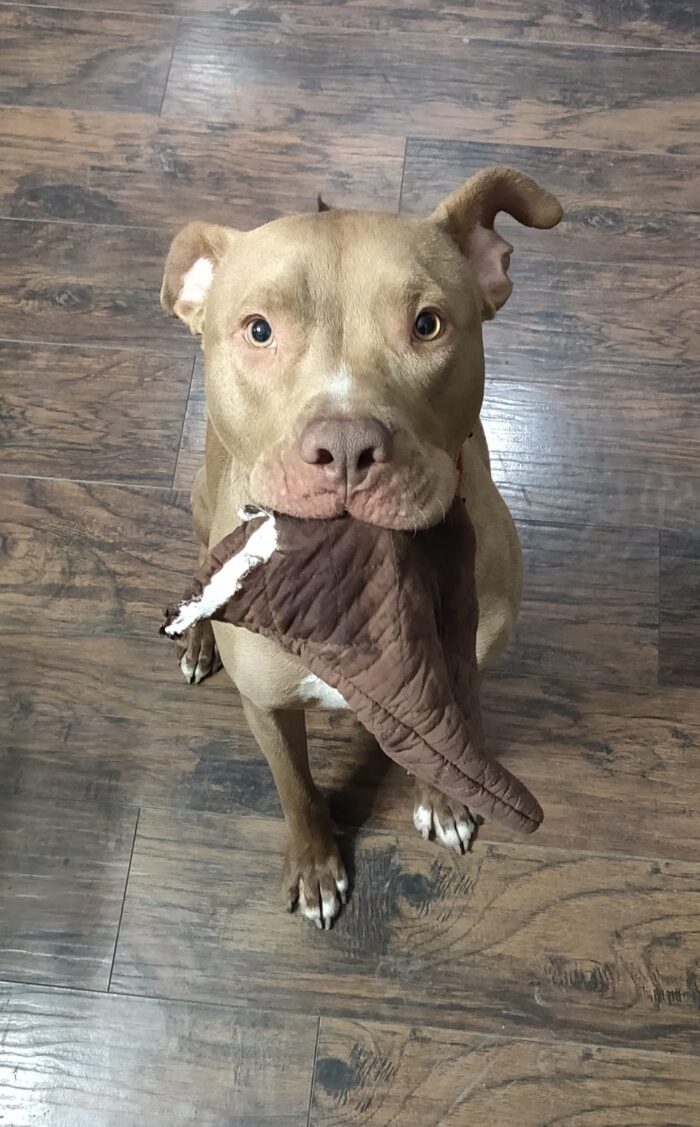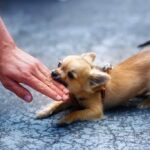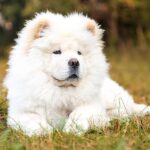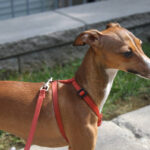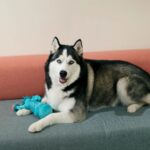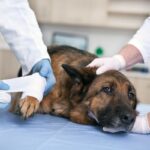Pit bulls are strong, energetic dogs that can sometimes turn to destructive chewing behaviors when bored or stressed. As responsible pit bull owners, it’s important we understand the causes of this behavior and learn positive solutions. In this article we talk about Dealing with Destructive Chewing in Pit Bulls.
Table of Contents
Why Do Pit Bulls Chew?
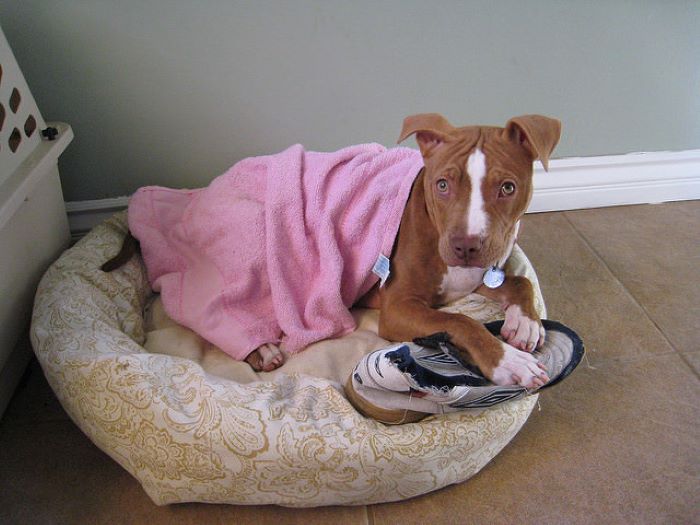
All dogs chew, especially as puppies. Chewing helps relieve pain from incoming adult teeth, eases anxiety and expends pent-up energy. For bull breeds, chewing satisfies natural instincts to grab and hold objects with their powerful jaws. Excessive chewing arises when those needs aren’t being met through proper outlets.
Common reasons include:
- Teething discomfort
- Separation anxiety when left alone
- Boredom from inadequate physical/mental exercise
- Stress and frustration
- Lack of acceptable chew toys
Pit bulls are tenacious chewers. Without intervention, destructive chewing habits can become ingrained behaviors leading to property damage, injuries, and surrender of dogs to shelters. Let’s explore constructive solutions.
Signs of Destructive Chewing
Destructive chewing refers to inappropriate chewing that damages items or poses safety risks. Common targets include:
- Furniture, baseboards, door frames
- Personal items like shoes, remote controls, eyeglasses
- Electrical cords, drywall, siding
- Personal injury from swallowing items
Excessive drooling, vomiting, or loss of appetite could indicate intestinal blockage from swallowing non-food items. Seek emergency vet care if you suspect a blockage.
Tips to Curb Destructive Chewing
It’s unrealistic to expect dogs to instantly stop chewing. Implement these tips to re-direct chewing to appropriate outlets:
- Dog-proof rooms and remove tempting items
- Provide acceptable chew toys and rotate frequently
- Use bitter apple sprays on targeted household items
- Give ample exercise through walks, play, training
- Occupy with food puzzles, chew treats, Kongs
- Crate train when unsupervised until chewing resolves
As chewing improves, gradually return freedoms. If chewing recurs, it’s a sign to reinforce training. Chewing often worsens during adolescence around 6-12 months old as puppies test boundaries. Remain patient and consistent.
Long-Term Solutions
The root of destructive chewing is unmet physical and mental needs. Meeting those intrinsic needs is key to resolving the behavior long-term.
Physical Exercise
Pit bulls require over an hour of hearty exercise daily. This includes on and off-leash running, play time with canine friends and focused training sessions with owners. Mentally drained dogs will be less apt to chew from boredom or pent-up energy. Provide plenty of breaks on hot days.
Enrichment Toys
Rotate novel, enriching toys to keep dogs engaged for hours. Food puzzle toys, Kongs, treat balls, rope toys and durable chews appeal to chewing urges and natural scavenging behaviors. Supervise all chew sessions until you’re certain items won’t be destroyed.
Obedience Training
Consistent obedience training curbs problem behaviors through mental stimulation, enhanced bonding and by reinforcing acceptable outlets like chew toys. Use reward-based methods with pit bulls such as clicker training. Never discipline dogs for destructive chewing, only reward them for correct behaviors.
Crate Training
Safely confining dogs during alone times prevents destruction until chewing habits improve. Make crates comfortable with beds, toys and treats. Limit crate times to under 4 hours for adults dogs and 2 hours for young puppies. Arrange potty breaks immediately before and after crating.
Stress and Anxiety Reduction
Anxiety, stress and under-socialization can trigger destructive chewing. Help timid dogs gain confidence through reward-based training, ample socialization and maintaining routines. Prescription anti-anxiety medications may be warranted in some cases under a vet’s care.
In Conclusion
It’s normal for pit bulls to chew, especially as juveniles. Destructive chewing usually arises from normal needs not being met such as physical activity, mental engagement, or stress relief. With patience and consistency from owners, dogs can learn to curb chewing onto appropriate toys. Prevent destruction by providing ample exercise, food puzzles, chews, supervision when loose, crating when alone, and obedience training. Should destructive chewing continue despite all efforts, seek help from certified dog trainers or behaviorists. I sincerely hope you find this “Dealing with Destructive Chewing in Pit Bulls” article helpful.
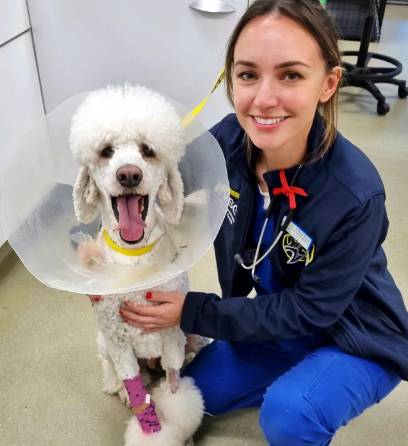
Dr. Kate Bruce is a highly experienced veterinarian with a Master’s degree in Veterinary Medicine and over a decade of expertise in animal behavior and holistic pet care. She combines traditional and modern practices to offer exceptional advice on pet health and wellness. Explore more at petsconsultancy.com and follow her on Instagram for expert tips.

